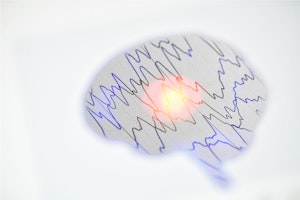In honor of Breast Cancer Awareness Month, Therapedic is wearing pink in October. We’re also blogging about pink – pink noise, that is.
For a while, everyone was talking about the effects of white noise on sleep. But it appears that a new noise color is… well, making more noise, so we thought we’d dive in to what is pink noise and why sleep experts say it benefits sleep and memory.
Colors of noise
The different colors of noise (white, pink, blue and brown) refer to differences in the distribution of the frequencies that humans can hear. You can think of it as the colors of light. Just like white light is made up of all the colors of the rainbow, white noise is made up of all the sound frequencies we can hear – and every frequency is equally distributed.
 Pink noise is similar to white noise, except that the frequencies do not have equal power, and it comes across to our ears louder and stronger at the lower frequencies. Some have described pink noise as turning up the bass on white noise. Examples of pink noise are waves lapping on the beach, leaves rustling in the trees, and the sound of a steady rainfall.
Pink noise is similar to white noise, except that the frequencies do not have equal power, and it comes across to our ears louder and stronger at the lower frequencies. Some have described pink noise as turning up the bass on white noise. Examples of pink noise are waves lapping on the beach, leaves rustling in the trees, and the sound of a steady rainfall.
Improving deep sleep and memory?
A small study conducted in 2012 by Chinese researchers tested how pink noise affects people during nighttime sleep and daytime napping. The participants’ brain activity was measured while they slept, and results showed that deep sleep occurred during both nighttime sleep and daytime naps when participants listened to pink noise compared to no noise. The participants reported they slept better on average when they listened to pink noise during sleep.
 In a similar study researchers synched pink noise with the brain waves of sleeping participants so that it played when the sleeper’s brain activity registered deep sleep. The pink noise corresponded with longer durations of deep sleep compared to no noise.
In a similar study researchers synched pink noise with the brain waves of sleeping participants so that it played when the sleeper’s brain activity registered deep sleep. The pink noise corresponded with longer durations of deep sleep compared to no noise.
Another interesting result from that study is that participants who listened to pink noise during sleep demonstrated better memory than those who had no noise, recalling twice as many word pairs that were shown to them the previous night. Two other studies published in 2016 and 2017 also support those findings that pink noise has benefits in deep sleep and memory.
How important is deep sleep?
Experts say that without deep sleep, most people do not feel rested or refreshed. During deep sleep, brain activity slows while the glucose metabolism in the brain increases, which aids in short-term and long-term memory and overall learning. This stage of sleep is also critical because it is when the pituitary gland secretes important hormones related to cell regeneration, growth and repair of muscles and tissues, and strengthening the immune system.
